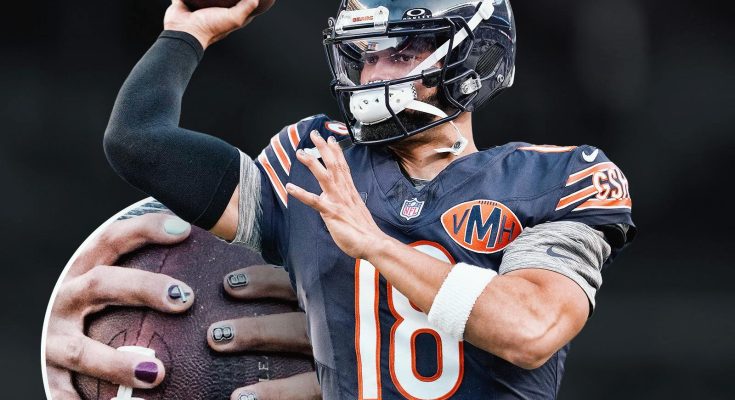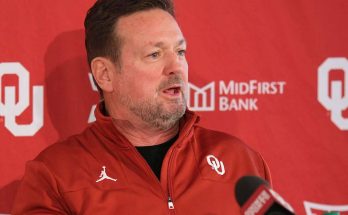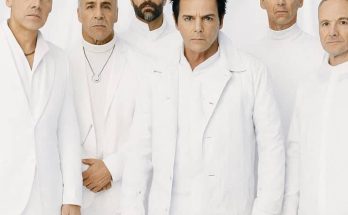Caleb Williams, the Bears’ quarterback, has taken a deeply meaningful and powerful step to raise awareness about mental health and suicide prevention by painting the suicide prevention logo and colors on his nails for tonight’s game against the Vikings. This visual statement is not just a style choice but a bold and personal message aimed at drawing attention to an issue that affects countless lives across the country and the world. Beyond the logo and colors, Williams has also painted the number 988 on his nails, referencing the Suicide and Crisis Lifeline, a critical resource for those struggling with mental health crises. This gesture is more than symbolic; it’s a call to action and a reminder that help is available, encouraging people to reach out and speak openly about their struggles.
In the high-pressure environment of professional sports, mental health is often an overlooked topic, yet it affects athletes just as much as anyone else. By using his platform in such a public way, Caleb Williams is helping to break down the stigma surrounding mental illness and suicide. The image of a strong, confident athlete openly supporting suicide prevention is a message of hope and solidarity for fans, teammates, and anyone watching. It underscores that mental health struggles are not a sign of weakness but a reality many face, and seeking help is a sign of strength. His actions encourage others to have conversations about mental health, to be more empathetic, and to support those who may be suffering in silence.
The 988 Suicide and Crisis Lifeline, which Williams prominently features on his nails, is a relatively new but vital resource designed to make it easier for people to access immediate help. By simplifying the number from the longer 1-800 numbers traditionally used, 988 offers a quick, memorable way for those in crisis to connect with trained counselors who can provide support and guidance. Williams’ decision to highlight this number on the field is a reminder that there is always a lifeline available, that no one has to face their darkest moments alone, and that reaching out can make all the difference. It reflects a broader movement within sports and society to prioritize mental well-being and to normalize conversations around these issues.
Caleb Williams’ initiative also speaks to the power of visibility and representation. When public figures and athletes openly discuss mental health, it helps dismantle the taboo and can inspire others to share their experiences and seek help. It signals that mental health struggles are universal and that everyone deserves compassion and support. For young fans who look up to Williams, seeing him advocate for suicide prevention sends a crucial message that their lives matter and that they are not alone, no matter what they may be going through. It’s an invitation to join a community of care, where mental health is treated with the same seriousness as physical health.
The significance of this act goes beyond the nails and the numbers. It’s about humanizing the conversation around suicide and mental illness, making it more approachable and less frightening. Suicide is a complex issue, often surrounded by silence and misunderstanding, but Williams’ gesture helps to bring it into the open in a positive, proactive way. It encourages people to recognize the signs of distress in themselves and others, to offer support, and to seek professional help when needed. It also highlights the importance of mental health education and resources in all areas of life, including sports.
Moreover, this moment is a testament to the evolving role of athletes as not just competitors but also advocates and role models. Sports figures have immense influence, and when they use their platforms to address important social issues like suicide prevention, it can lead to real change. Caleb Williams is showing that being a leader on the field also means being a leader in the community, using his voice to promote awareness and foster a culture of care and understanding. This is especially vital given the increased awareness of mental health challenges among athletes themselves, who often face intense pressure and scrutiny.
By integrating the suicide prevention logo and the 988 lifeline number into his personal presentation for the game, Williams bridges the gap between awareness and action. It’s a reminder that advocacy can be expressed in many forms — through words, art, or even nail polish — and that every gesture counts. This act can encourage fans and others to learn more about suicide prevention, to share resources, and to be vigilant about the mental health of those around them. It’s a call to community, urging everyone to play a part in supporting those who might be struggling.
In a broader sense, Caleb Williams’ actions reflect a growing cultural shift toward prioritizing mental health in all facets of life, including sports. Organizations, teams, and leagues are increasingly recognizing the importance of mental wellness and are implementing programs to support athletes and staff. Williams’ public statement aligns with these efforts, amplifying the message that mental health care is crucial and should be accessible to everyone. It also challenges outdated notions of toughness that discourage people from expressing vulnerability or seeking help.
Ultimately, Caleb Williams’ decision to showcase the suicide prevention logo and 988 lifeline number during a major game is a profound example of how sports can be a platform for social good. It goes beyond the game itself, touching on issues that impact millions and providing a beacon of hope. His courage to wear this message visibly demonstrates leadership and compassion, reminding us all of the importance of reaching out, listening, and supporting one another through life’s challenges. It’s a powerful reminder that mental health matters, that no one has to suffer alone, and that there is always help available, symbolized by those simple numbers: 988.



